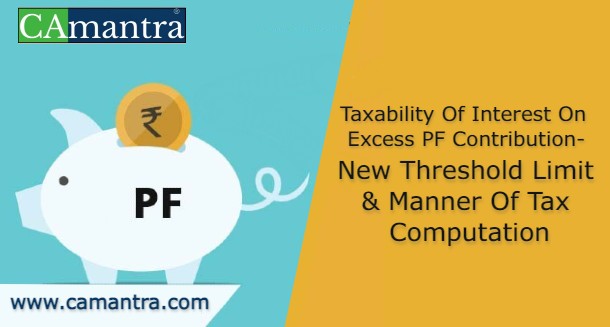The Government has increased the deposit threshold limit to INR 5 lacs per annum in the provident fund for which interest would continue to be tax-exempt if there is no employer contribution. This announcement by the Finance minister Mrs. Nirmala Sitharaman was part of the amendments which was made to the Finance Bill, 2021 at the time of passing of the Bill on 23 March.
Provident Funds Where Employer Do Not Contribute: General Provident Fund (GPF) is a kind of provident fund where employers do not contribute in the PF account.
Therefore, the amendment proposed by the Finance Minister to the Budget provision which are related to the capping of employee PF contribution for tax exemption is only meant for the subscribers of the General Provident Fund.
Now the question is What Is GPF (General Provident Fund)? The General Provident Fund (GPF) is one kind of PF account which is available only for government employees in India.
- All the temporary government employees after a continuous service of 01 year, all government employees who are permanent service, and all re-employed pensioners (other than those eligible for Contributory Provident Fund) are essentially required to subscribe to the GPF.
- The subscription amount for the GPF is fixed by the subscriber himself/herself. However, the contribution rate should not be less than 6% of the total salary of the employee. The maximum contribution is 100% of the employee’s salary.
- The interest rate on the GPF funds is revised by the government from timely basis which are depend upon the current market interest rate.
The increased threshold limit to INR 5 lacs per annum in the provident fund for which interest would continue to be tax-exempt is applicable for General Provident Fund only and there is no change in provisions for normal EPF subscriber, where both employer and employee are at least contributing 12% each of basic plus Dearness Allowance and contribution for tax-free interest is capped at INR 2.5 lacs.
Employee Provident Fund: The Employee Provident Fund (EPF) is available to salaried people ifrom the organized sector and contributions to the fund are made by both the employee and the employer.
- EPF is the saving scheme backed by government that provides a social security to the employees working in the organized sector.
- It is essential for any organization who are having 20 or more employees is to be registered under the EPF scheme and provide its benefits to their employees.
- EPF is managed by the EPFO (Employees’ Provident Fund Organization) under the act i.e. Employees’ Provident Fund & Misc. Provisions Act, 1952.
- Employees who are enrolled under the EPF need to contribute 12% of their basic salary towards the EPF fund and the same contribution is made by the employer on a monthly basis.
- The EPF fund’s interest rate is decided by the govt. from time to time which is currently fixed at the rate of 8.50%
Voluntary Provident Fund (VPF): Let’s come to the concept named as Voluntary Retirement Fund is the voluntary fund contribution from the employee towards his/her provident fund account. This contribution is beyond the 12% of contribution by an employee towards his/her Employee Provident Fund. The maximum contribution is up to 100% of his/her Basic Salary and DA. Interest is earned at the same rate as the Employee Provident Fund.
- The VPF option is available only to salaried person who get their monthly payments through a particular salary account.
- VPF is the extension of EPF. In an EPF account, a person has to essentially give 12% of his/her Basic Salary and Dearness Allowance towards the fund. In a VPF, it is a voluntary contribution having maximum limit of 100%.
Employees’ Provident Fund (EPF) for the organized sector, GPF for government employees and Public Provident Fund (PPF) for all resident Indians are the three major provident funds in India.
Budget 2021-22 has rationalized tax-free income on PF contribution by high-income earners by making the exemption on interest income earned on annual contribution to INR 2.5 lacs applicable to EPF & VPF. The government is yet to notify the way interest will be counted.

